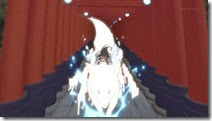 |
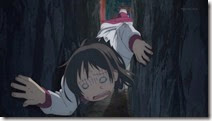 |
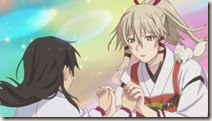 |
As soon as Inari Konkon was announced as 10 episodes, I should have known Jerry Seinfeld’s “This is going to be a shame” would have fit perfectly.
A few weeks back I compared Inari, Konkon, Koi Iroha to a meal where the side dishes were excellent, but the main course was rather bland. Watching the finale another gastronomic metaphor popped into my head – the experience of having interesting dishes placed in front of you one after another, then yanked away as soon as you enjoyed one tasty bite. There was a lot on the plate here that I would have liked to savor, but the length of the adaptation – and the narrative choices in the writing – made sure I never got much of a chance.
Gingitsune came to mind for obvious reasons when this series was announced, but if we’re looking for examples of adaptations that were more successful I don’t think in hindsight it makes the best comparison. Gingitsune is seinen, for starters, and while people make too much of demographic designations sometimes, they’re often dismissed too easily too – Gingitsune is written like a seinen thematically, and it makes a big difference. A better comparison for me is Kamisama Hajimemashita – a shoujo manga adaptation where the human and Divine worlds interesect built around a personal relationship – actually several. That was a better show, substantially so in fact. It was sharper, more focused, with a clearer sense of purpose and a much edgier sense of humor. I’ll take the word of those who tell me the problem here is mostly with the adaptation and not the source material, but Inari Konkon seemed to suffer from a lack of focus and the absence of any real sense of imperative when it came to the main cast.
I don’t have that much to say about the final episode because in truth, there was a lot of anti-climax to it. The key emotional moments were supposed to be the running of the foxes at the beginning (I did like the way it was paired with the OP) and the attempts to open the cave door. But both fell pretty flat for me and just as much of a problem, both went on way too long. I just didn’t have the buy-in to Uka and Inari’s relationship needed to make that kind of heavy-handed delivery seem justified – instead, it bordered on unintentionally comedic (especially the latter scene). I mean, Amaterasu obviously could have opened that door any time she wanted (and it’s silly to imagine that Inari and Siscon could), and the fact that she didn’t really undercut the possibility that Uka was in serious danger.
It’s easy to focus on Inari as the problem here, and there’s no denying that she’s a pretty bland main character. But there are plenty of shows with bland M.C.’s – shoujo and otherwise – that do just fine, and there are plenty of far worse female leads than Inari, who may not be all that interesting but isn’t really annoying or anything. In fact, though her pairing with Touka was interesting I think Uka-sama was the bigger issue. As she sat n that cave blaming herself for what had happened, all I could think of is, “You’re right.” This really is entirely her fault, and for my tastes Uka was just too fallible – too much of a screw-up, too human – and not an especially competent one – to be a believable Kami. Gods with human emotions and problems are a staple of anime and manga, but unless it’s played strictly for screwball comedy they need to have more presence than this. Faults in the Divine are entertaining, but the nature of Uka’s just make her seem unexceptional.
Each of the two leads, while uninspired on their own, was involved in a relationship that was genuinely pretty good – Inari with Kouji and Uka with Touka – but neither received much focus in the final episode. Inari and Kouji’s puppy love struck just about the right note for a middle-school romance, I thought – awkward and hesitant, but with an element of innocent friendship still a part of it. As for Uka and Touka, in a way he was the perfect compliment to her – a mere human who wasn’t afraid to point out what a sub-par Kami she makes, but do it with affection. There really weren’t enough interesting quirks in Inari Konkon generally, and Touka was the closest thing to giving the series a real edge.
As for the ending itself, I was pleased that at least the anime didn’t try and have it both ways by having Inari give back Uka-sama’s powers without losing the ability to see her. There are things here that don’t add up for me – namely, why didn’t Inari go back to looking like Sumizome, which was the problem that prompted Uka’s bad decision to begin with? I’m also curious as to why Touka and not Inari was able to see Uka in the first place – and indeed, it seems he’s still able to do so in the end – though as that was never specifically raised as a plot point I suppose the series doesn’t owe us an answer on that one. On the whole it was about the ending you would have expected – no more and no less – and in that, perfectly fine.
On balance I’d have to say Inari Konkon was a disappointment for me, mainly because I went into it with reasonably high expectations. There were indeed some lovely visuals – you can hardly do better than Fushimi Inari for a backdrop and IMS did a very credible job bringing it to life. And there were a few genuinely moving moments scattered here and there, along with decent comedy. But for me only about half the episodes were really compelling, and the central theme of the series just never grabbed any traction. I’d have been much more interested in a series about the relationship between the otome Goddess and the chuunibyou high-schooler, or a comedic take on the dysfunctional family atop the Shinto hierarchy. What we got was mostly pleasant, cute and inoffensive – but not a show that was exceptional in any way. Inari, Konkon, Koi Iroha was like a meal at a family restaurant – perfectly fine in the moment, but forgotten as soon as you’re out the door.
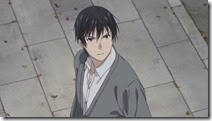 |
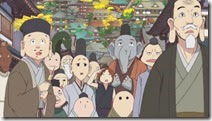 |
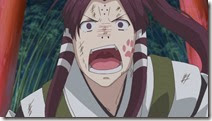 |
 |
 |
 |
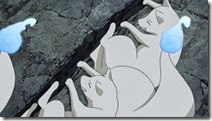 |
 |
 |
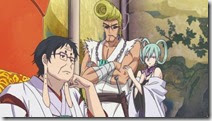 |
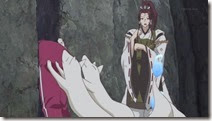 |
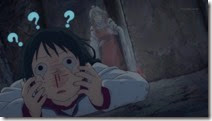 |
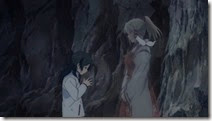 |
 |
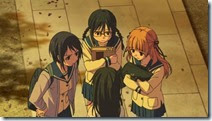 |
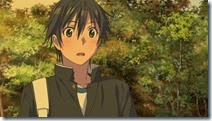 |
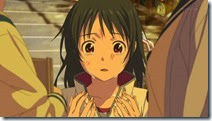 |
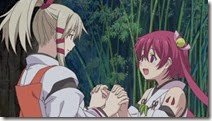 |
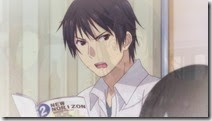 |
 |
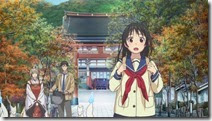 |


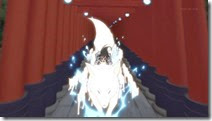
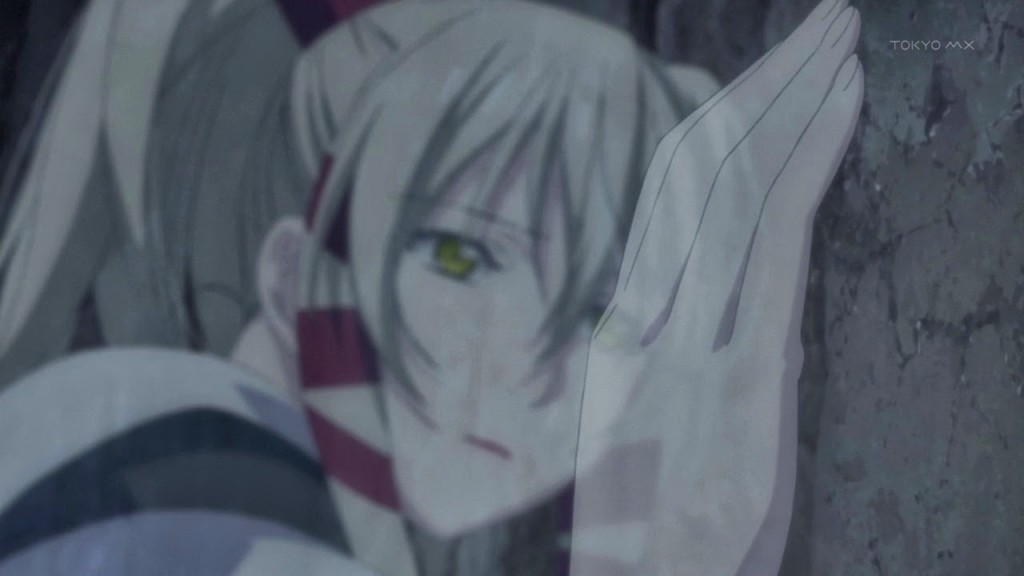
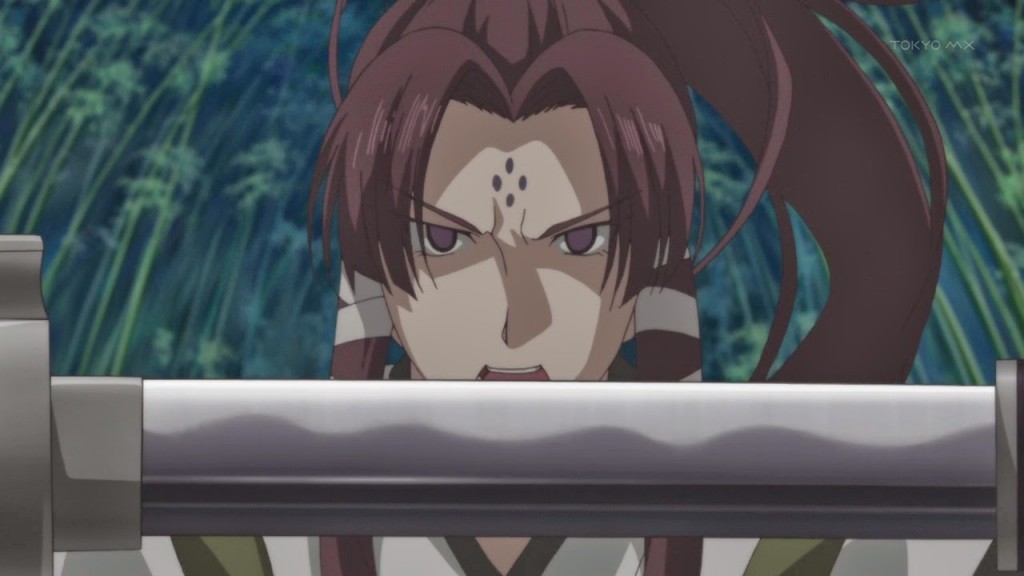
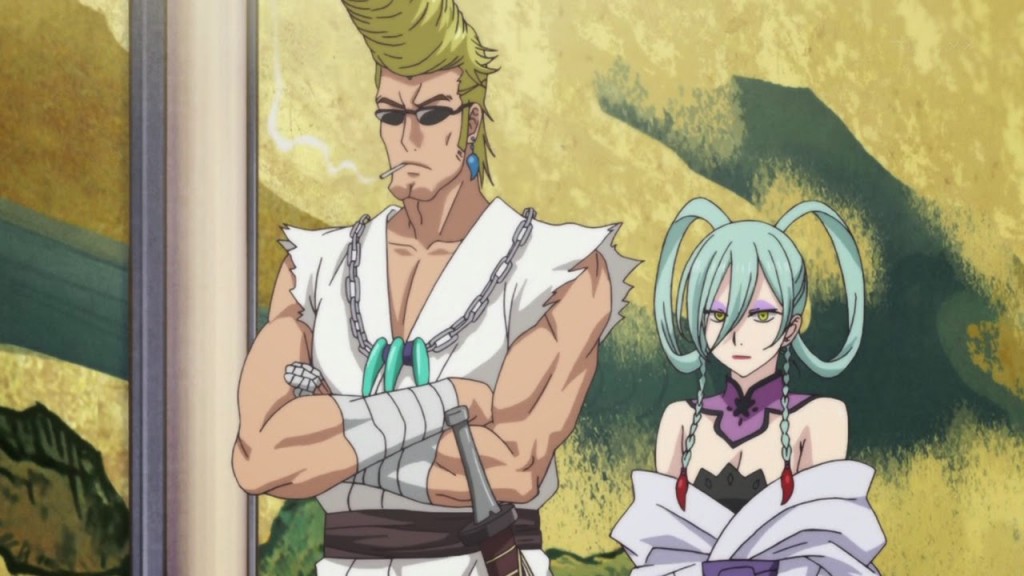
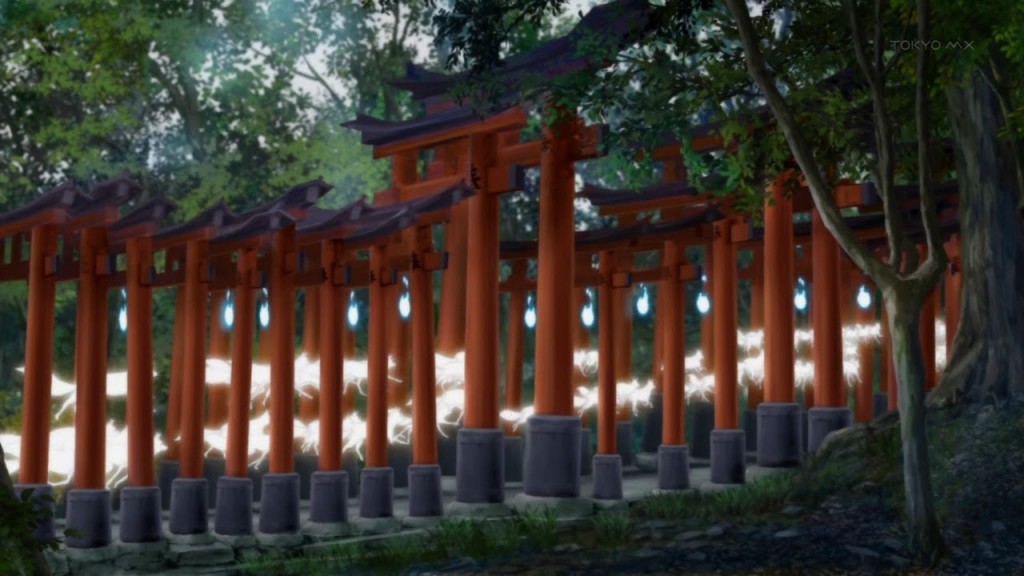
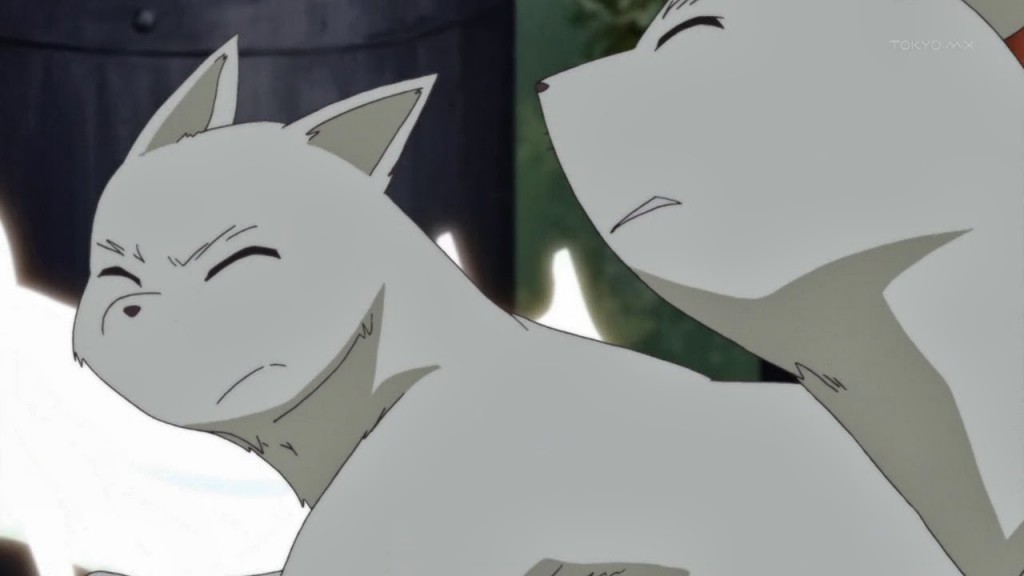
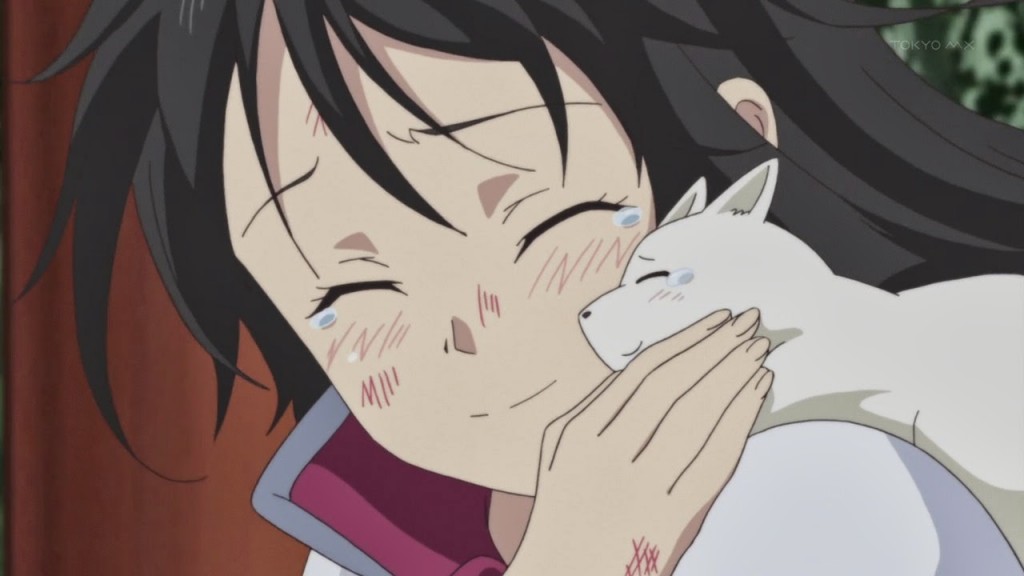
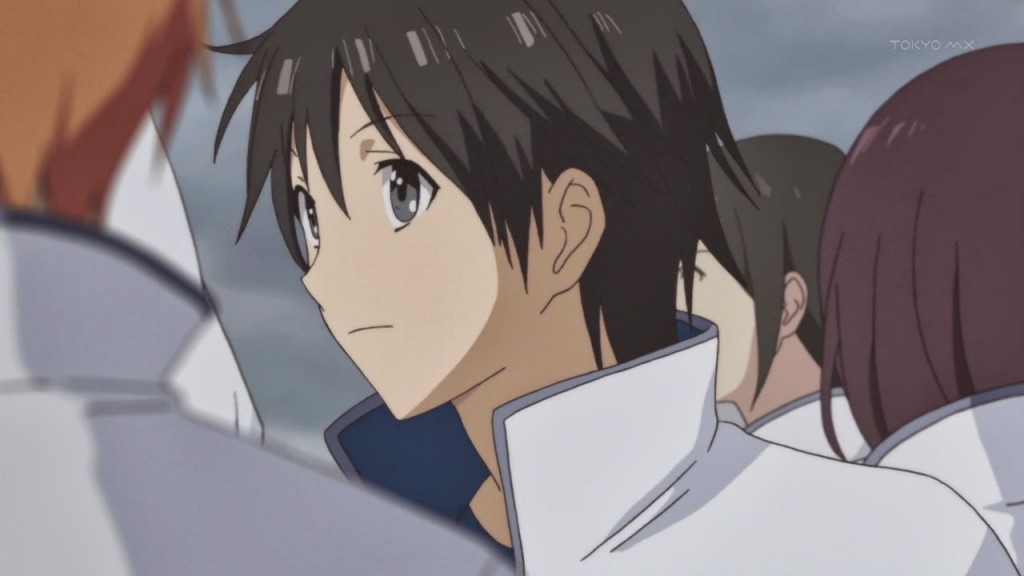
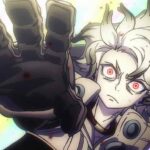
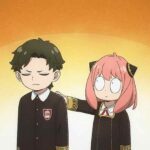
unequivocalhorizon
March 20, 2014 at 8:50 amWell I suppose since the series is done, we can SAFELY compare this episode with the equivalent chapter of the manga, which is chapter 24.
Ready? Good. Put simply, none of what happens in this episode actually happens in the manga.
The previous episode actually comprises most of chapter 24 — Inari is confronted by Momoyama's friends at the shed, Inari gets angry, and loses control of her powers. Where things get changed is, at the point Inari loses control, Amaterasu stops time to prevent Inari from killing everyone, then sends Mia to tell her up-front that, as long as she has Uka's powers, things like this will keep on happening. At that, Inari willingly reliquishes her powers, whereupon she's teleported IMMEDIATELY to Uka's side.
Then with little fanfare, she returns Uka's powers, and is immediately transported back to the point where Sumizome arrives with Momoyama. And that's it.
So yes, a lot of this episode was made-up drama to make an artificial climax to the series.
Mocha
March 20, 2014 at 3:20 pmI did like Inari's slow walk through the shrine after she loses her powers, though. It might have been artificial drama, but it was nice all the same.
maverickmann84
March 20, 2014 at 1:27 pmI disagree with you when you say Inari wasn't annoying. I guess it's less of a character thing, and more of a voice actress thing, but I found those weird noises she makes and her whiney tone when she displayed strong emotion to be hard to put up with at times. But again I agree her character wasn't the worst or too annoying overall
. I didn't have any problems at all with Uka. Her having human tendencies didn't bother me. Maybe bc my only knowledge of polytheistic religions are ones where the Gods act more flawed than most humans, or at best the same as what would be considered a good person but not anyone exceptional. Maybe the Japanese deities used in this show (Shintoism?) were supposed to be better, and it didn't match? But my lack of knowledge kept that from bothering me.
I liked the show at times, maybe not as many of the side stories as you, but enough of them to see how this could've been a much better show. But the other times were done so poorly with overdramatizing things that really aren't a big deal at all, absurd clichés used as often as any series I can remember, and just really poor attempts at comedy.
SixFlags
March 20, 2014 at 7:44 pmIt kind of caught me off-guard that this was the last episode. Somehow I had something like 11 episodes in mind for this series when I watched this episode yesterday, until I saw your post.
It really is a pity that they did not adapt more chapters from the manga, because I kind of liked the unusual characters in this series. (like Touka, but also Sumizome). The humor was nicely pulled off too in my opinion.
thedarktower
March 20, 2014 at 10:30 pmInari konkon is indeed somehow…a shame.
having 10 eps is an indication for it, but we had blood lad which had 10+1 eps, so I had hoped this show can manage too. however, having so many omissions and last two eps being kinda fillers, made a huge disappointment to me. and yeah, this comes from the perspective of the manga-reader, but regardless, you could feel that something here isn't right. especially those last eps, felt so..stupid.
however, InaKon deserve some credit as it has some good points. visuals were really ok and OST (especially during the breaks) were very good since it induce the right touch of shinto and stuff.
and to a certain extent it managed to bring what the manga is about. now yeah. back then it seemed fit to compare to gingitsune, but you're right this is somewhat different. and I did like that in InaKon there is a combination of shojo with the supernatural/myth stuff. it is nice. although in some parts anime didn't bring it right, I did feel it's nice.
thanks for blogging InaKon in its good and bad times. I enjoyed reading your reviews, especially since you are not a manga reader, it was interesting.